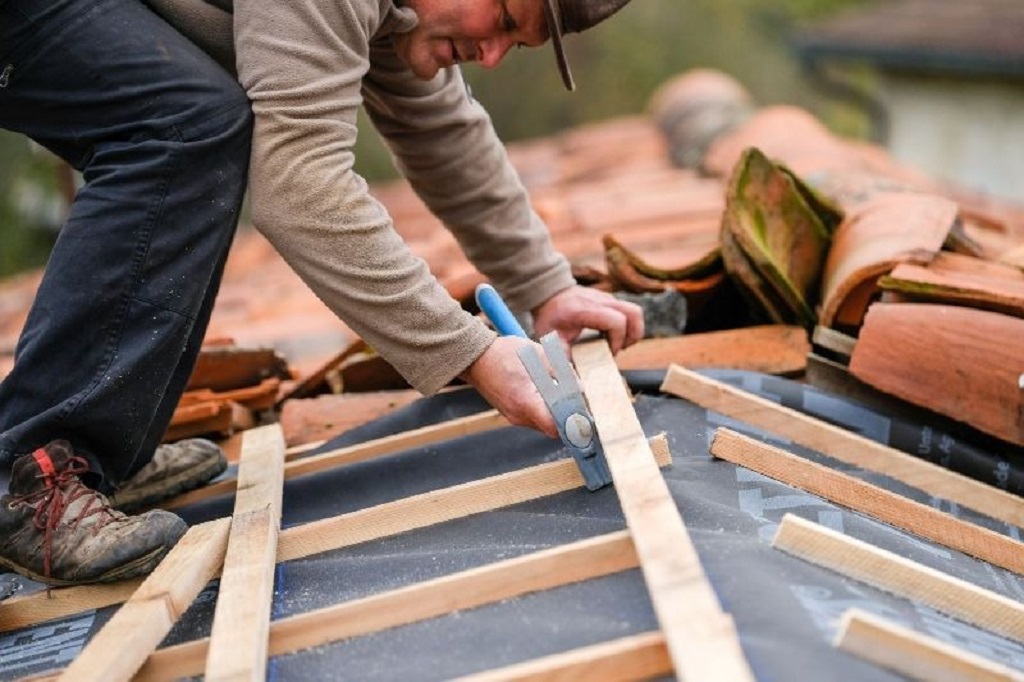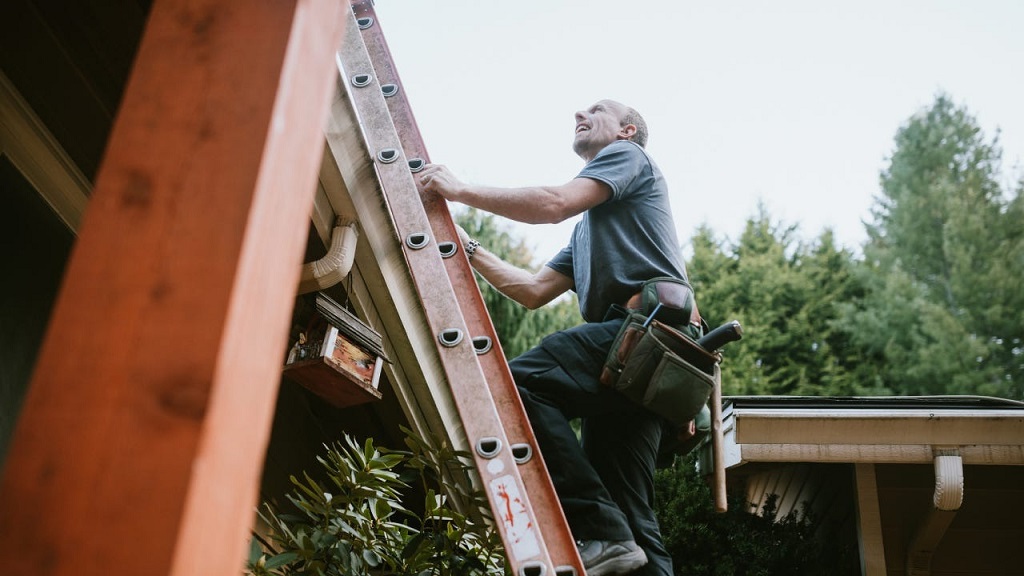Roof Inspections 101: What Every Homeowner Needs to Know

Your roof is your home’s first line of defense against the elements. It shields you from rain, snow, wind, and sun, ensuring your comfort and safety. But like any other part of your home, your roof requires regular maintenance and inspections to stay in top shape.
Why Roof Inspections Matter
A roof inspection is a thorough examination of your roof’s condition, identifying any existing or potential problems. It helps you:
- Prevent Major Damage: Small issues, like a cracked shingle or a loose flashing, can quickly escalate into major problems if left unaddressed. Regular inspections allow you to catch these issues early and fix them before they cause leaks, water damage, or structural problems.
- Extend Your Roof’s Lifespan: With proper care and maintenance, a roof can last for decades. Regular inspections help identify areas that need attention, allowing you to make repairs and prolong your roof’s life.
- Maintain Your Home’s Value: A well-maintained roof is a major selling point for any home. Regular inspections ensure your roof is in good condition, enhancing your home’s curb appeal and value.
- Save Money: Addressing small problems early on is much cheaper than dealing with major repairs down the line. Regular inspections can save you money in the long run.
Maximizing Efficiency and Minimizing Risk in Data Center Migration Strategies
When to Schedule a Roof Inspection
- After a Major Weather Event: High winds, heavy rain, hail, or snow can cause significant damage to your roof. If your area has experienced a major weather event, it’s crucial to schedule an inspection to assess any potential damage.
- Twice a Year: The National Roofing Contractors Association recommends inspecting your roof twice a year, ideally in the spring and fall. This allows you to identify any wear and tear that may have occurred during the winter or summer months.
- Before Selling Your Home: If you’re planning to sell your home, a roof inspection is a must. It provides potential buyers with peace of mind knowing the roof is in good condition.
- If You Notice Any Signs of Damage: If you see missing or damaged shingles, leaks, water stains on your ceiling, or any other signs of trouble, schedule an inspection immediately.
What to Expect During a Roof Inspection
A professional roof inspection typically involves a thorough examination of both the interior and exterior of your roof. Here’s what you can expect:
- Interior Inspection: The inspector will examine your attic or crawl space, looking for signs of leaks, water damage, mold, or poor ventilation. They’ll also check the condition of the roof deck, insulation, and any supporting structures.
- Exterior Inspection: The inspector will climb onto your roof to examine its overall condition. They’ll look for damaged or missing shingles, cracks, blisters, moss or algae growth, and any other signs of wear and tear. They’ll also check the condition of flashings, chimneys, vents, and other roof penetrations.
- Gutter and Downspout Inspection: The inspector will check your gutters and downspouts for clogs, leaks, or damage.
- Detailed Report: After the inspection, the inspector will provide you with a detailed report outlining their findings. The report will include any identified problems, photos, and recommendations for repairs or maintenance.
Read More Also: Understanding Financial Expert Witnesses
Choosing a Qualified Roof Inspector
Selecting a reputable and qualified roof inspector is crucial. Look for:
- Licensing and Insurance: Make sure the inspector is licensed and insured. This protects you in case of any accidents or damage during the inspection.
- Experience: Choose an inspector with several years of experience in the roofing industry. They’ll have the knowledge and expertise to identify any potential problems.
- Certifications: Look for inspectors who have certifications from reputable organizations like the National Roofing Contractors Association (NRCA).
- References: Ask for references and check online reviews to gauge the inspector’s reputation and customer satisfaction.
- Written Estimate: Get a written estimate before any work begins. This will ensure there are no surprises when it comes to the cost of repairs.
Questions to Ask Your Roof Inspector
- What’s the overall condition of my roof?
- Are there any signs of damage or potential problems?
- What repairs or maintenance do you recommend?
- How much will the repairs cost?
- How long will the repairs take?
- Do you offer any warranties on your work?
DIY Roof Inspections: Proceed with Caution
While it’s possible to conduct a basic visual inspection of your roof from the ground, it’s important to remember that a professional inspection is much more thorough and can identify problems that may not be visible from the ground. If you choose to do a DIY inspection, be sure to take safety precautions, such as using a sturdy ladder and wearing non-slip shoes.
Conclusion
Regular roof inspections are essential for maintaining your home’s structural integrity, protecting your investment, and ensuring your family’s safety and comfort. By scheduling inspections at the recommended intervals and addressing any issues promptly, you can extend your roof’s lifespan, prevent costly repairs, and enjoy peace of mind knowing your home is well-protected.
Remember:
- Your roof is a vital part of your home. Don’t neglect it.
- Regular inspections are key to preventing major problems.
- Choose a qualified and experienced roof inspector.
- Address any issues promptly to avoid costly repairs.
- A well-maintained roof adds value and protects your home for years to come.

